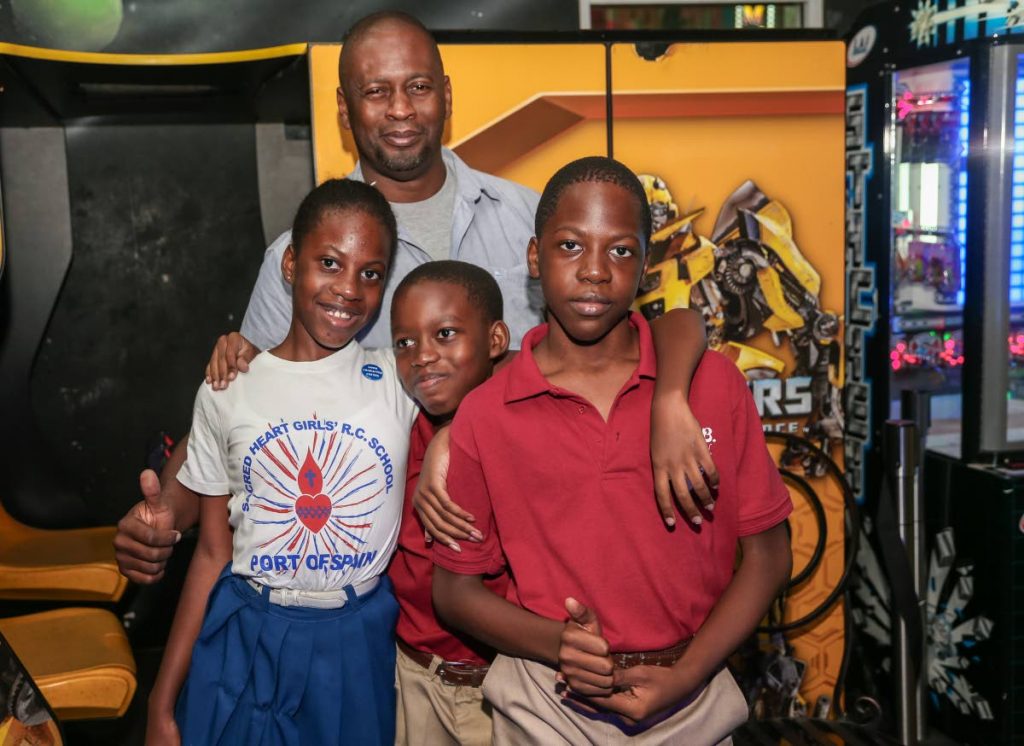GOD IS FIRST

MOST parents want their children to attend denominational schools – highly regarded as prestige schools – because of the high value which is placed on the spiritual life, human development and parental involvement by the governing boards of education.
President of the National Parent Teachers Association (NPTA) Raffiena Ali-Boodoosingh, sharing this view, said students and staff of denominational schools start each day with prayers.
"They start their day in a different form of mind, they put God first. In government schools, this does not always apply. They would do moral education which may or may not have God in it," she told Sunday Newsday.
Denominational secondary schools are often the schools of choice for Secondary Entrance Assessment (SEA) students and their parents for these reasons, she observed.
Ali-Boodoosingh was responding to Justice Frank Seepersad’s concerns about the pressure placed on primary school children to pass for prestige schools.
Even as his own daughter passed for Naparima Girls' High School – one of the leading girls schools – Seepersad, after Friday's SEA results, said many children felt they failed in the eyes of society if they did not pass for a prestige school and believed the exam should be revised.
Ali-Boodoosingh, a retired principal of Macaulay Government Primary School, said spirituality plays a major role in the choices and, in most cases, all students participate in devotions of the faith-based schools.
It is uncommon, she said, for parents to ask for their children not to participate in religious activities of a school because they belong to a different faith.
Denominational secondary schools in TT are predominantly Roman Catholic, Hindu, Muslim and Presbyterian and are presided over by school boards.
The NPTA head said each religious organisation has an influence on the schools staff and the teachings. The staff of denominational schools, she believes, have fewer social problems to deal with compared to government schools.
"There are more psycho-social problems to deal with in government schools. It takes more out of the teachers. In the prestigious schools, there aren’t as many students from dysfunctional families," she said.
There are also more children of "well-to-do parents" in denominational schools.
In terms of parental involvement, she said: "Denominational schools may not have a PTA, the way we operate ours, but they would have a strong parental organisation. They may call it other names, including a PTA, and their main purpose is fund-raising to provide for the school."
By doing this, the children and parents build pride in the school.
However, Ali-Boodoosingh did note several government schools where students excel such as Debe High and Pleasantville Secondary.
Monsignor Christian Pereira, of Our Lady of Perpetual Help RC, said traditionally denominational schools have a standard of excellence which is now being replicated in other schools.
For him, good leadership has a huge role in students excelling.
"Where there is good leadership, excellence really strive. The main thing is leadership in the schools and there are some non-denominational schools that are doing really well," Pereira said.

Peter Cummins celebrate at MovieTowne, Port of Spain with his children, triplets Janae, Jonathan and Jovan, who passed for Holy Name Convent and St Mary's College in the SEA exam. PHOTO BY JEFF MAYERS
Denominational schools continue to strive for an all-round holistic type of education, he added.
"While excellence on the academic remains very important, we also strive for excellence in other subject areas and co-curricular activities."
In Catholic schools, he explained, there is a human and spiritual formation programme which is geared towards building the human capacity of the students "while we honour the creator who sustains us."
"It is the ideal we try to foster in all of our schools," Pereira said.


Comments
"GOD IS FIRST"